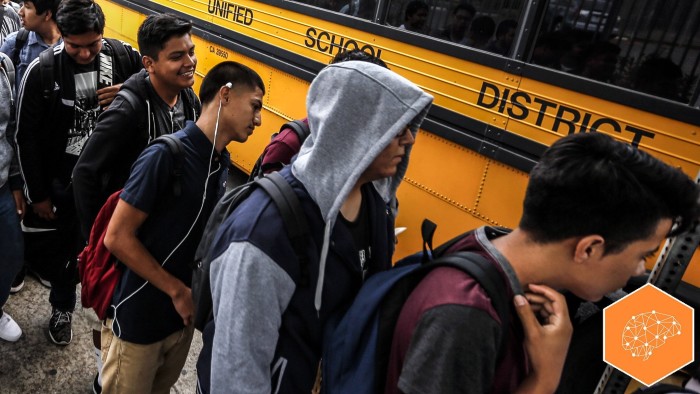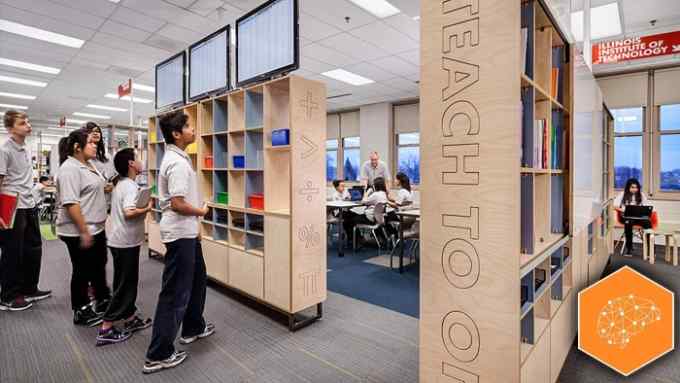Why sleeping more will help the national economy

Roula Khalaf, Editor of the FT, selects her favourite stories in this weekly newsletter.
It sounds like an absurdly simple way to improve public health and boost the economy: delay the start of the school day until 8.30am at the earliest. Yet a recent study by RAND, the research organisation, estimated that such a move in the US, where classes often begin well before 8am, would add $83bn to the national economy over a decade, and $140bn over 15 years, by raising students’ academic attainments and reducing illness.
The RAND report is the latest manifestation of a growing concern that inadequate and ill-timed sleep is causing a public health disaster in the industrialised world. Matthew Walker, neuroscience professor at the University of California, Berkeley, describes a silent sleep loss epidemic in his book Why We Sleep, published last summer. He says changing social and employment patterns and new sleep-disrupting consumer products such as smartphones, are “having a catastrophic impact on our health, our life expectancy, our safety, our productivity and the education of our children.”
Students in secondary schools are particularly vulnerable as a result of biological changes during adolescence, which push back their circadian rhythm — the natural body clock that controls the sleep-wake cycle — by as much as three hours compared with the adult cycle. Even if they go to bed early and are not distracted by smartphones and social media, they struggle to fall asleep and then fail to get enough sleep before having to get up for an early school start.
Medical bodies such as the US Centres for Disease Control and the American Academy of Paediatrics recommend that no school should begin work before 8.30am. Yet the CDC estimates that 93 per cent of US high schools fail this test. Many start before 7.30am, with school buses beginning to pick up students as early as 5.45am. As Prof Walker puts it, “this is lunacy”. The problem is less acute in most other countries; start times in the UK are typically 8.30am to 8.45am.
50 ideas to change the world
We asked readers, researchers and FT journalists to submit ideas with the potential to change the world. A panel of judges selected the 50 ideas worth looking at in more detail. This third tranche of 30 ideas (listed below) is about new ways to handle information and education. The next 10 ideas, looking at advances in healthcare, will be published on March 5, 2018.
- Holograms
- Scanners to read our minds
- Quantum computing
- All the world’s data stored on DNA
- The next challenges for AI
- Rethinking our sleep schedule
- Personalised learning
- Neural networks allow us to read faces
- Learning to overcome digital distractions
- Robots in the classroom
In the face of a growing public clamour for later starts, many education authorities in the US have resisted on grounds ranging from the convenience of working parents to the cost of changing school bus schedules and the logistics of fitting in extracurricular activities.
The RAND study found, however, that such costs of change would be far outweighed by the gains resulting from better academic performance and health, as adolescents benefit from more sleep. There is also a gain from reduction in car crashes, which are more likely when people are sleep-deprived.
A scan of regional and local news media across the US suggests that the message is beginning to get through, as more school districts are starting later, but there is scope for more progress.
While shifting the hours of the school day is, at least in some districts, a potential quick hit in the battle to engineer a more sleep-friendly society, there are many other arenas where change is desirable. A key one is the workplace, where a “sleep is for wimps” attitude is still common.
A 2016 RAND report estimated that employees sleeping fewer than seven hours per night cost the US more than $400bn a year, and the UK $40bn a year, because their performance at work is less productive than it would be if they slept for at least eight hours. The total economic cost of inadequate sleep is about 2 per cent of GDP.
Yet here too change is under way. Companies such as Procter & Gamble offer employees “sleep hygiene” courses, Prof Walker says, while Nike and Google allow employees to match their work hours to their individual circadian rhythms. A growing number of companies are installing “nap pods” in their office buildings.
Hospitals often represent a nadir of sleep deprivation, with exhausted doctors and nurses putting their patients’ and their own health at risk. Long periods on duty without sleep, which are still required during medical training in many countries, lead junior doctors to make avoidable errors. While reform is in the air here too, more radical action is required to protect hospital doctors and patients from the adverse consequences of sleep deprivation.

Patients also benefit from sleeping well in hospital. That means deploying noisy equipment and alarms only when they are really necessary, lighting wards at night as dimly as consistent with safety, and supplying ear plugs and eyemasks to patients who want them.
Babies who are ill or born prematurely pose a particular challenge. Their developing brains should be sleeping most of the time, yet the strong lighting and noise of most neonatal intense care units makes this difficult to achieve. Recent research has shown — not surprisingly — that neonatal units in which lighting is dimmed as far as possible are associated with better sleep for the infants and earlier discharge from hospital.
Every baby, child and adult deserves an opportunity to sleep well, whether in hospital, at home or at work. His or her health will depend on it.

Comments